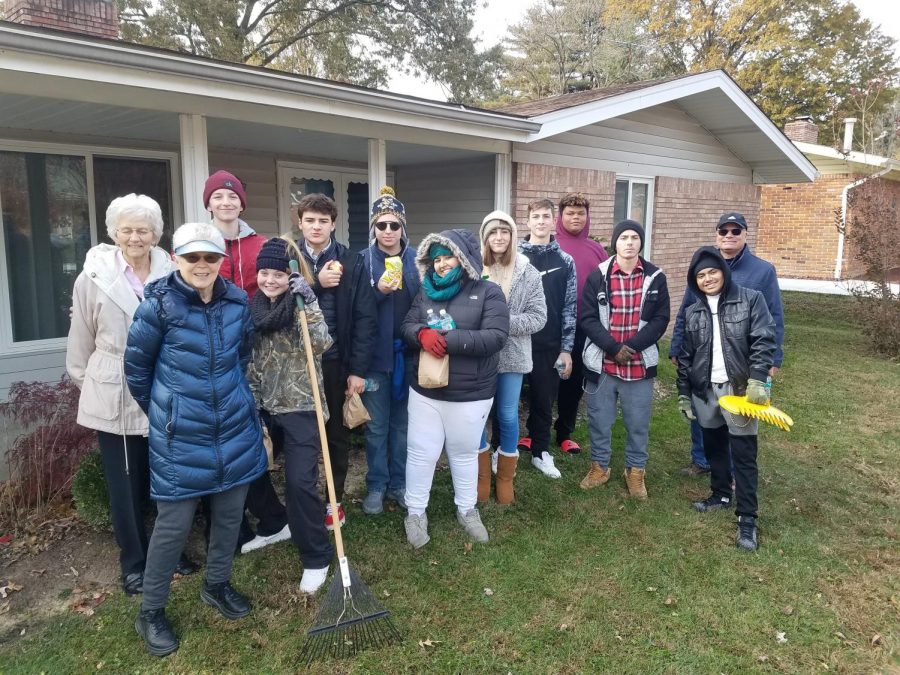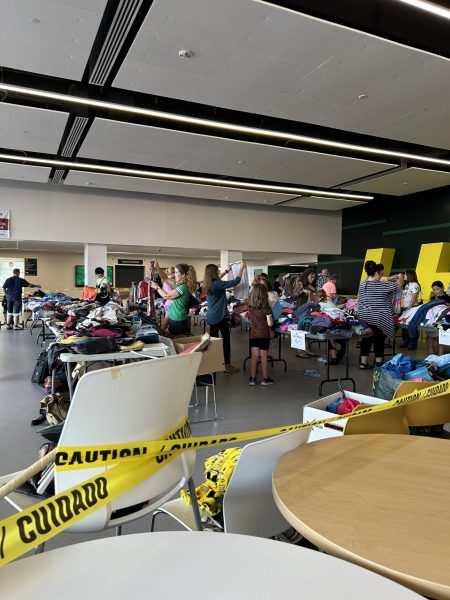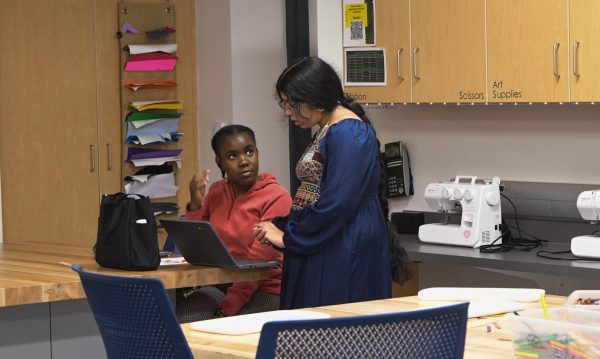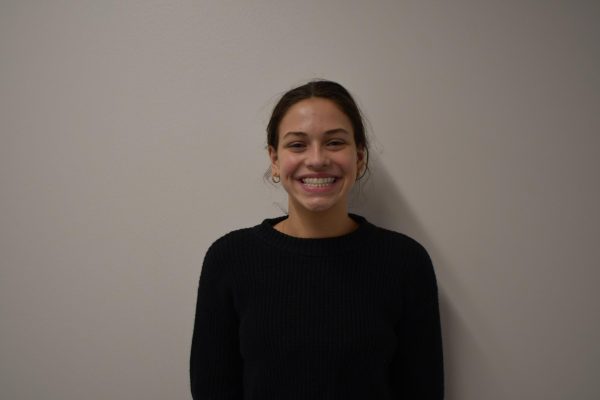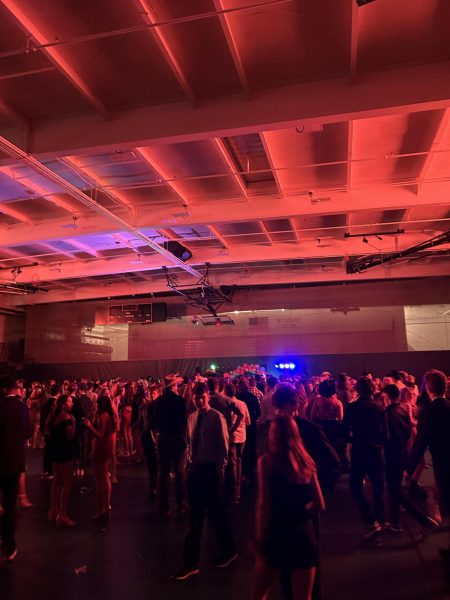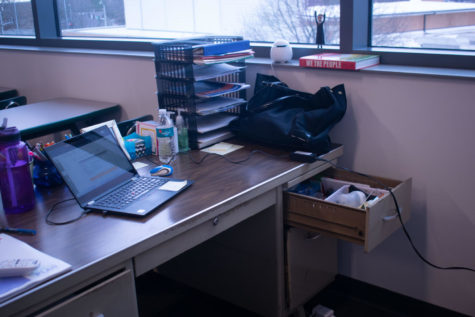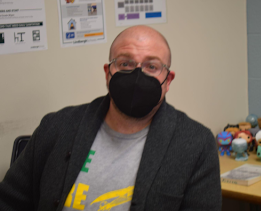The Other Side
The Academy raises its voice to address misconceptions created by the student body
Courtesy of Dan Murphy
Students from the academy after their annual Rake-A-Thon. During the Rake-A-Thon, students went to senior citizens’ yards and raked their leaves. It is a big help for the elderly who cannot do it themselves and it is great for the Lindbergh community.
In a far corner of Lindbergh High School there is a place where students can learn called the academy. Students enter the Academy for a variety of reasons.. Some have experienced academic difficulties in a traditional setting, while others attend because of unique personal circumstances that have prevented them from succeeding in the classroom.
“We had one student a few years ago who had really bad issues with his lungs and he knew every fall he would be out for at least a month. Over here, we have four classes in a day. For that kid, this was a better setting for him to be successful. We’ve also had students whose parents passed away. There was one student who was Bosnian. His dad passed away, his mom couldn’t work a full-time job because she didn’t have the language skills, so he had to work to support his family. Because [the Academy] leaves around 12:40-12:50 every day, he was able to finish here, go and work a job to support his family,” English teacher Dan Murphy (Academy) said.
Academy students do not only face difficulties in their personal lives. Often, they face harmful misconceptions at Lindbergh because of the program’s reputation and separation from the rest of the student body.
“[The misconception is] all of our girls are pregnant and all of our boys are fighting and using drugs,” Murphy said. “Even when I was a teacher on the other side, before I came here, that’s what I thought, because I never saw the kids. I never got to meet them.”
Students and teachers in the Academy agree that there are few people in Lindbergh’s general population who accurately understand the program’s purpose and the type of students who attend.
“If I ever go over [to the other side], people think I’m like a prisoner. Before I went here, one of the teachers was like ‘You’re better than that place, that place is for delinquents,’” Alex Agnew (12) said.
Misconceptions about the program have even made it a difficult decision for some students to join. When entering, most new students to the Academy are only aware of it from other students’ rumors.
“I first started coming to the Academy at the end of sophomore year. I was super scared at first. I didn’t want to go, but once I was here I realized that I liked it a lot better than the other side. I like the people over here a lot better too because we all come for the same reasons.” Dylan Wicker (12) said.
Life in the Academy itself defies common stereotypes, and allows students to succeed academically in an educational style that better fits their needs. Students follow the same curriculum as those on “the other side,” learning the same skills and materials.
“We are Lindbergh kids. We’re studying the same stuff that other Lindbergh kids study. We’re the same, we’re all the same. We’re just in a different place doing things a little bit differently,” Murphy said.
